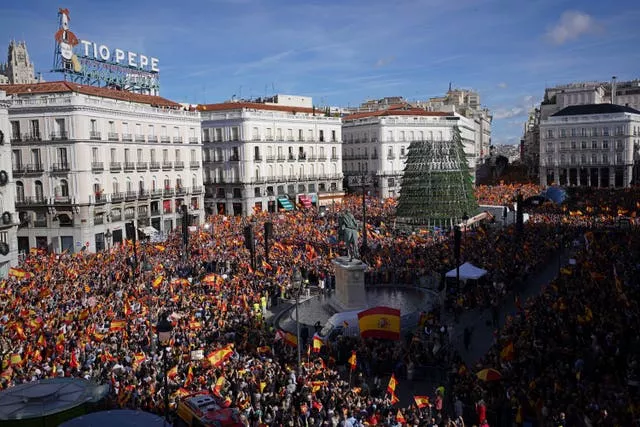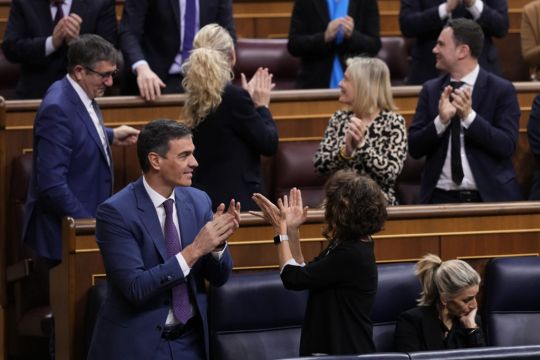Spain’s parliament has approved an amnesty bill aimed at forgiving crimes — both proven and alleged — committed by Catalan separatists during a chaotic attempt to hold an independence referendum in the region six years ago.
Socialist prime minister Pedro Sanchez has promoted the amnesty as a way to move past the 2017 secession attempt by the then-leaders of Catalonia, a northeastern region centred around Barcelona where many people speak the local Catalan language as well as Spanish.
But the Bill has also met opposition from millions of Spaniards who believe that the people who provoked one of Spain’s biggest political crises should face charges including embezzlement and promoting public disorder.

Mr Sanchez has already pardoned nine jailed Catalan independence leaders, a move that helped heal wounds at little political cost. But the amnesty is proving to be much more divisive.
The Bill was passed by 178-172 votes in favour in the 350-seat lower house of parliament in Madrid.
The secession crisis erupted in 2017, when a regional administration led by Carles Puigdemont staged a referendum on independence, defying orders from the national government and a ruling from Spain’s top court that doing so violated the constitution. Madrid sent in police in an attempt to stop the referendum, which was opposed by protests that turned violent.
The Catalan parliament declared independence on October 27 that year but it failed to garner any international support.

Mr Puigdemont and several other senior officials later fled Spain.
Hundreds or thousands of people in Catalonia face the threat of prosecutions related to the referendum or protests, and Mr Puigdemont and other leaders remain abroad.
Recent court investigations have accused the former regional president of terrorism for allegedly masterminding massive protests that clashed violently with police and closed roads, train lines and the Barcelona airport in 2019.
Mr Sanchez agreed to the amnesty to secure the backing of two Catalan separatist parties, after an inconclusive national election last July turned them into kingmakers.

The conservative opposition accuses Mr Sanchez of selling out the rule of law in exchange for another term in the Moncloa Palace and has organised major street protests during recent months.
Socialist party parliamentary spokesman Patxi Lopez defended the Bill on Thursday as a move to seek a page-turning “reconciliation” with Catalonia.
The opposition Popular Party leader Alberto Nunez Feijoo hit back saying that “this is not reconciliation but submission”.
It was not clear whether the deal would add stability to Mr Sanchez’s minority government: Junts, a separatist party led by Mr Puigdemont, said that Mr Sanchez owed them the amnesty for having supported his bid to stay in power, and that their potential backing of his policies would depend on what they could get in return.
The Bill still faces a number of procedural steps before becoming law. The Senate, which has a conservative majority is expected to reject it, which would mean that parliament’s lower house would have to vote for it a second time to push it through.

Mr Sanchez’s party has had a hard time crafting a bill that satisfies the separatists and which will surely be highly scrutinised by the courts. Parliament rejected an earlier version of the Bill in late January when Junts said it did not do enough to protect Mr Puigdemont. The Bill then went back to a parliamentary committee, where it was tweaked to suit Junts’ needs.
Mr Puigdemont now lives in Belgium, where he has become a European Parliament member. A fugitive from Spanish justice, he calls himself a political exile.
Thursday’s vote comes a day after Catalonia’s regional leader called early elections. That decision added more uncertainty to Spanish politics and led to Mr Sanchez cancelling plans for a 2024 budget because of the difficulty he would have had trying to get the support of the two separatist parties during election time.
The government says the amnesty could help hundreds of people, while the pro-independence Catalan organisation Omnium Cultural says it should benefit some 4,400 people, mostly minor officials and ordinary citizens who either helped to organise the referendum or participated in protests.
The application of the amnesty would be decided by the courts on a case-by-case basis.







